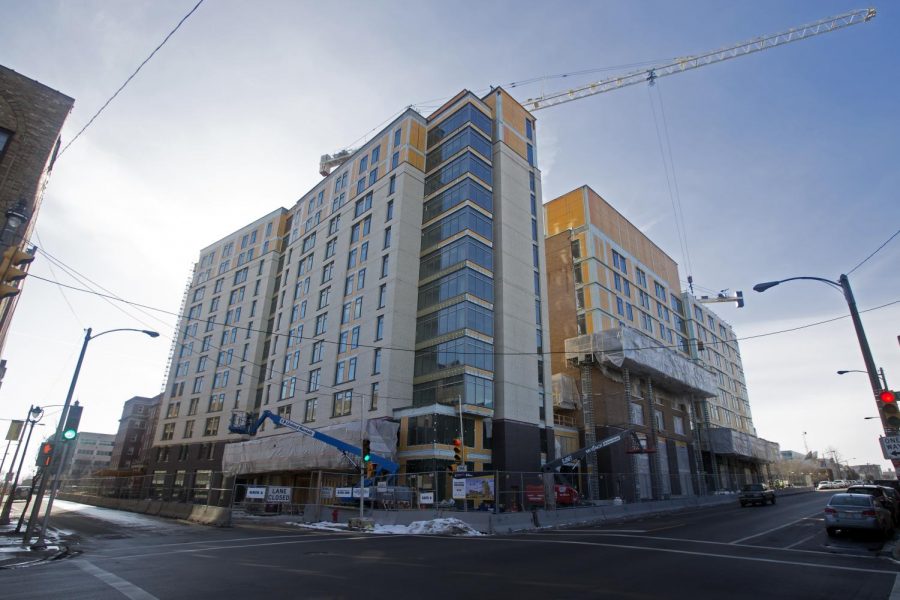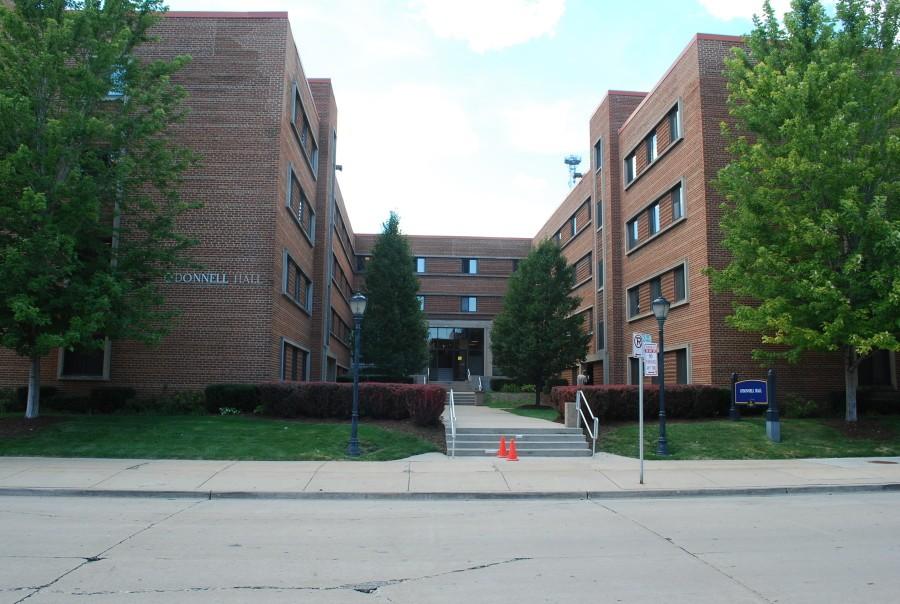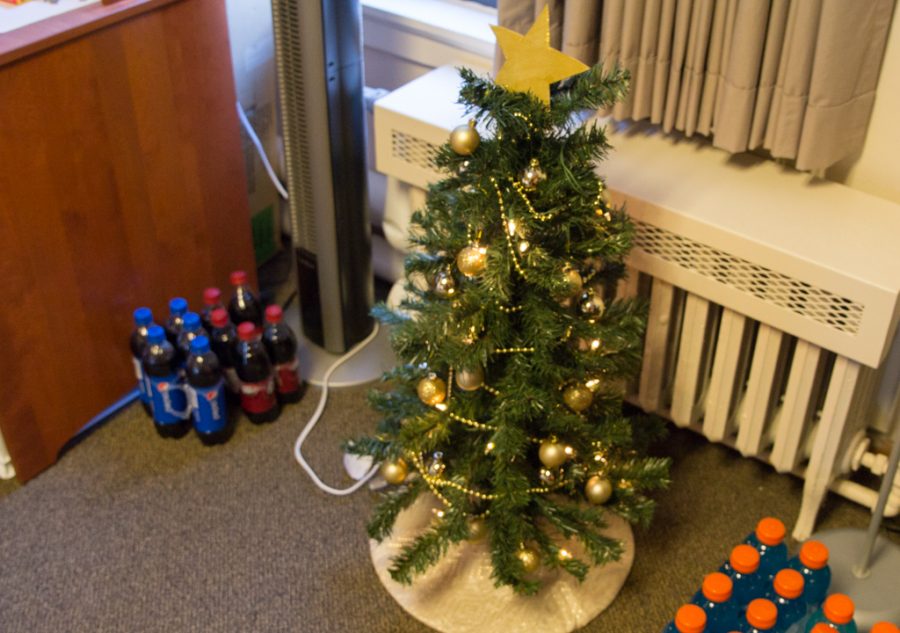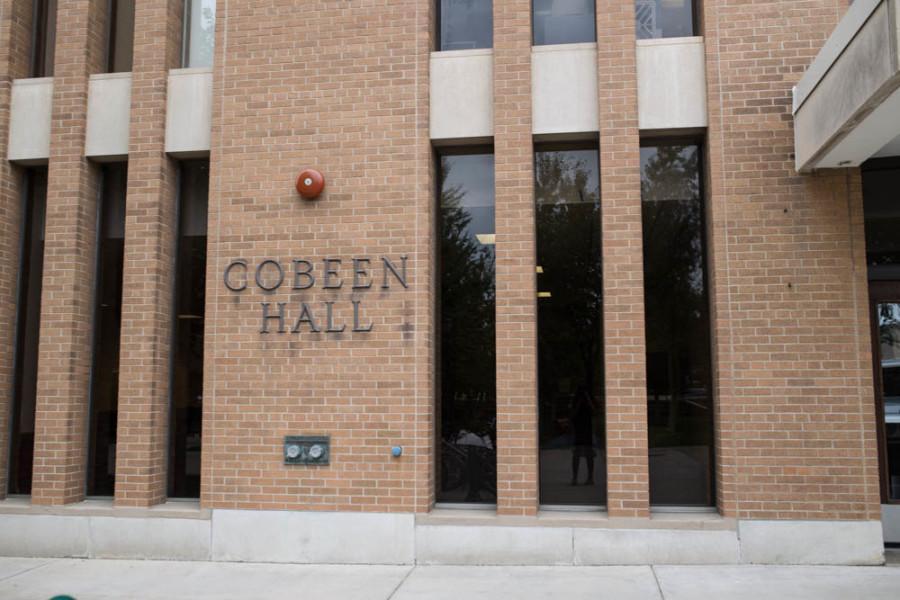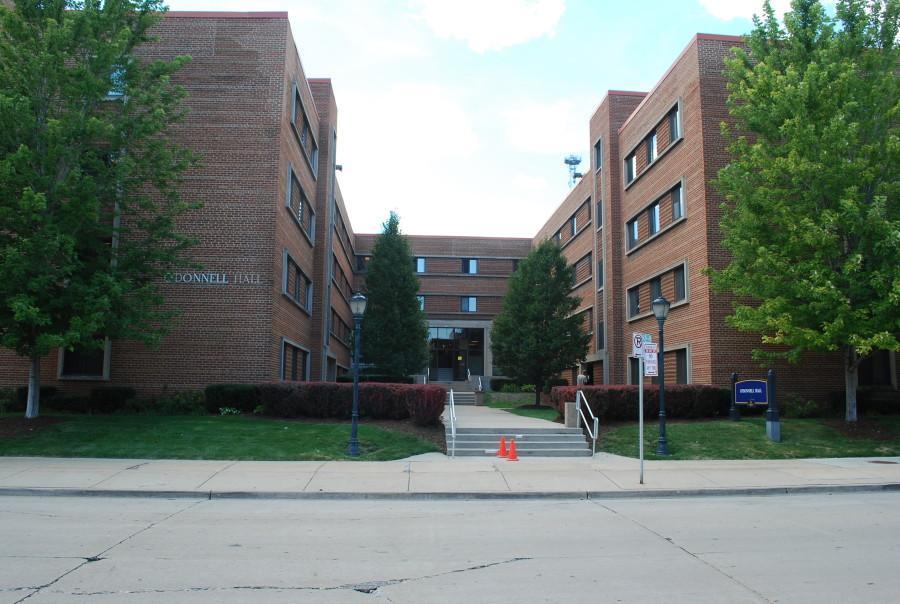Wild Hall, Straz Tower and Mashuda Hall will have co-ed floors next academic year.
The decision originated from a Marquette University Student Government request to the Office of Residence Life at the beginning of the 2016-2017 school year. MUSG then spent a year researching and surveying other Jesuit institutions in the Midwest in conjunction with the Residence Hall Association, Mary Janz, director of the Office of Residence Life, said. The two organizations then formed a proposal and presented it to the Office of Residence Life.
“Wild Commons allows us to maximize occupancy in what will likely be a preferred building by many,” Janz said. “We will not sit with unnecessary vacancies because the male/female breakdown does not work perfectly.”
Janz said Straz Tower is already co-ed by door in its Honors, Dorothy Day and Spanish living-learning communities, leaving only four floors to convert before the building is fully co-ed. Due to its private, in-room bathrooms, Mashuda Hall would also be easy to convert, Janz said.
Despite the fact that males and females will be living on the same floor, Janz said there will be no changes regarding the current visitation policy. The policy states that students can be on an opposite gender’s floor until 1 a.m. weeknights and 2 a.m. weekends.
“MUSG felt it was important that first-year students have options such as Cobeen, O’Donnell and Abbotsford to live with single genders on each floor … This is a nice blend of providing options for all of our students,” Janz said.
Carpenter Tower will offer housing arrangements for students with religious restrictions. Schroeder Hall and Humphrey Hall will remain gender-by-floor due to the single bathroom and shower areas on each floor.
With the Resident Assistant application process beginning next week, Janz said there will be no changes to the application process. The selection process will remain balanced between genders while also taking the best applicants, she said.
Collected data from last summer indicated that students are ready for co-ed floors, Emma Baumgart and Andi Sirokman, honors students and resident assistants, said. They conducted a study based on gender theory and the history of gender in residence halls to see how Marquette students would feel about co-ed floors.
The study had 199 responses spread out among four honors classes. Their findings indicated students would generally be equally comfortable on a co-ed floor as a non-co-ed floor. Men tended to be more comfortable than women, and all LGBTQ+ responses indicated that they would be more or equally comfortable on a co-ed floor.
Mallory Mews, a resident assistant in Straz Tower’s honors living-learning community, has seen the change from gender-by-floor to co-ed firsthand.
“My residents love the co-ed floors, and I’ve heard much the same feedback from the other RAs on my staff as well,” Mews said. “It took a little getting used to at first, but once people got over the initial shock of change, everything was as if the change never happened.”
Mews said her residents like the ability to get to know students on their floor they might not have met without the co-ed transition.
While there have been some minor adjustments, like finding floor traditions that appeal to residents of both genders, Mews said things have mostly remained the same.
“I would say the experience is generally the same from an RA’s point-of-view in terms of how we go about our role on the floors,” Mews said. “The residents are still talkative and fun to get to know, and the floor is still inclusive and welcoming and familial.”

